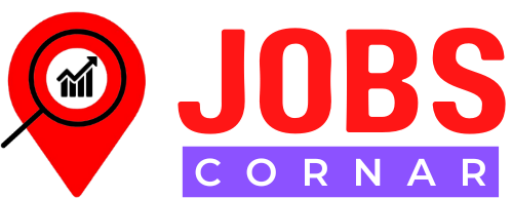Introduction
Career planning is a crucial process that empowers individuals to take control of their professional lives and achieve their aspirations. By strategically mapping out your career path, you can make informed decisions, set achievable goals, and build a fulfilling and successful career. In this comprehensive guide, we’ll delve into the intricacies of career planning, from understanding its importance to creating actionable steps that align with your ambitions.

Best Book for Career Planning
1- How to start thinking about the careers you might want in the future?
2- How to narrow down your options?
3- Step-by-step guide on how to choose the right career path
4- How to create a roadmap to achieve your career-related goals
Career Planning: A Foundation for Success
Career planning involves more than just finding a job; it’s about aligning your passions, skills, and aspirations to create a roadmap for success. Whether you’re just starting your career journey or looking to make a switch, effective career planning can make a significant difference.
The Importance of Career Planning
Without a clear plan, you might find yourself drifting through various jobs without a sense of direction. Career planning helps you stay focused, motivated, and aligned with your long-term goals, enabling you to seize opportunities that truly resonate with your aspirations.
Assessing Your Strengths and Interests
To embark on a successful career planning journey, it’s essential to know yourself. Identify your strengths, skills, and interests to pinpoint areas where you can excel and find genuine satisfaction. Consider utilizing tools such as personality assessments and skills inventories to gain insights into your potential career paths.
Setting SMART Goals
Setting goals is a fundamental aspect of career planning. Utilize the SMART (Specific, Measurable, Achievable, Relevant, Time-bound) framework to define clear objectives for your career. This approach ensures that your goals are well-defined and attainable, enhancing your focus and commitment.
Exploring Career Options
Research is a key component of career planning. Explore various industries, job roles, and sectors that align with your interests and skills. Leverage online resources, networking events, and informational interviews to gather insights and make informed decisions.
The Role of Education and Training
Education and continuous learning play a pivotal role in career advancement. Identify whether your desired career path requires additional qualifications or certifications, and invest in relevant education and training to enhance your expertise.
Crafting a Winning Resume and Cover Letter
Your cover letter and resume are your first impressions on employers. Tailor these documents to showcase your skills, experiences, and achievements relevant to your chosen field. Highlight how your unique qualities align with the specific job requirements.
Navigating the Job Search
In the ever-evolving job market, effective job search strategies are essential. Utilize online job boards, company websites, and professional networks to identify and apply for suitable positions. Craft each application to align with the job description and company culture.
Mastering the Art of Networking
Networking can open doors to unexpected opportunities. Always attend industry events, conferences, and workshops because these help you to connect with professionals in your field. Building relationships can lead to valuable mentorship, collaborations, and even job referrals.
Acing the Interview
Preparing for interviews is crucial to making a positive impression. Research the company, practice your responses to common interview questions, and develop compelling anecdotes that highlight your skills and accomplishments.
Negotiating Job Offers
When you receive a job offer, it’s essential to negotiate terms that reflect your value and align with your career goals. Consider factors such as compensation, benefits, work-life balance, and growth opportunities before making a decision.
Embracing Continuous Growth
Career planning is an ongoing process. Regularly reassess your goals, skills, and interests to ensure alignment with your evolving aspirations. Seek out professional development opportunities, attend workshops, and stay updated on industry trends.
Achieving Work-Life Balance
Maintaining a healthy work-life balance is essential for long-term career satisfaction. Set boundaries, prioritize self-care, and allocate time for activities that recharge you both personally and professionally.
Overcoming Career Challenges
Challenges are an inevitable part of any career journey. Whether it’s a setback or a period of uncertainty, approach challenges as opportunities for growth. Adaptability, resilience, and a positive mindset are crucial in navigating these moments.
FAQs
How often should I review my career plan?
Regular reviews of your career plan are essential, especially during pivotal life events or when you’re considering a change. Aim to reassess your goals and progress at least once a year.
Is it too late to start career planning when am in my mid-career?
It’s never too late to start career planning. Mid-career individuals can benefit from a focused plan that leverages their experiences and skills to transition into a more fulfilling role or industry.
How do I handle a career change, especially if it requires new skills?
A successful career change requires careful planning. Identify transferable skills, seek relevant training, and consider starting in a related role before transitioning fully.
What if my career goals change over time?
Career goals can evolve, and that’s perfectly normal. Embrace the change and adjust your plan accordingly. Flexibility is key to staying aligned with your aspirations.
How can networking benefit my career planning efforts?
Networking exposes you to new opportunities, insights, and mentorship. Building a strong professional network can provide support and guidance throughout your career journey.
What role does self-assessment play in career planning?
Self-assessment helps you understand your strengths, preferences, and areas for improvement. This knowledge forms the foundation for making informed decisions about your career path.
Conclusion
Career planning is a dynamic process that empowers you to take charge of your professional trajectory. By understanding your strengths, setting clear goals, and remaining adaptable, you can build a successful and fulfilling career. Remember, career planning is not a one-time event but a continuous journey toward personal and professional growth.





